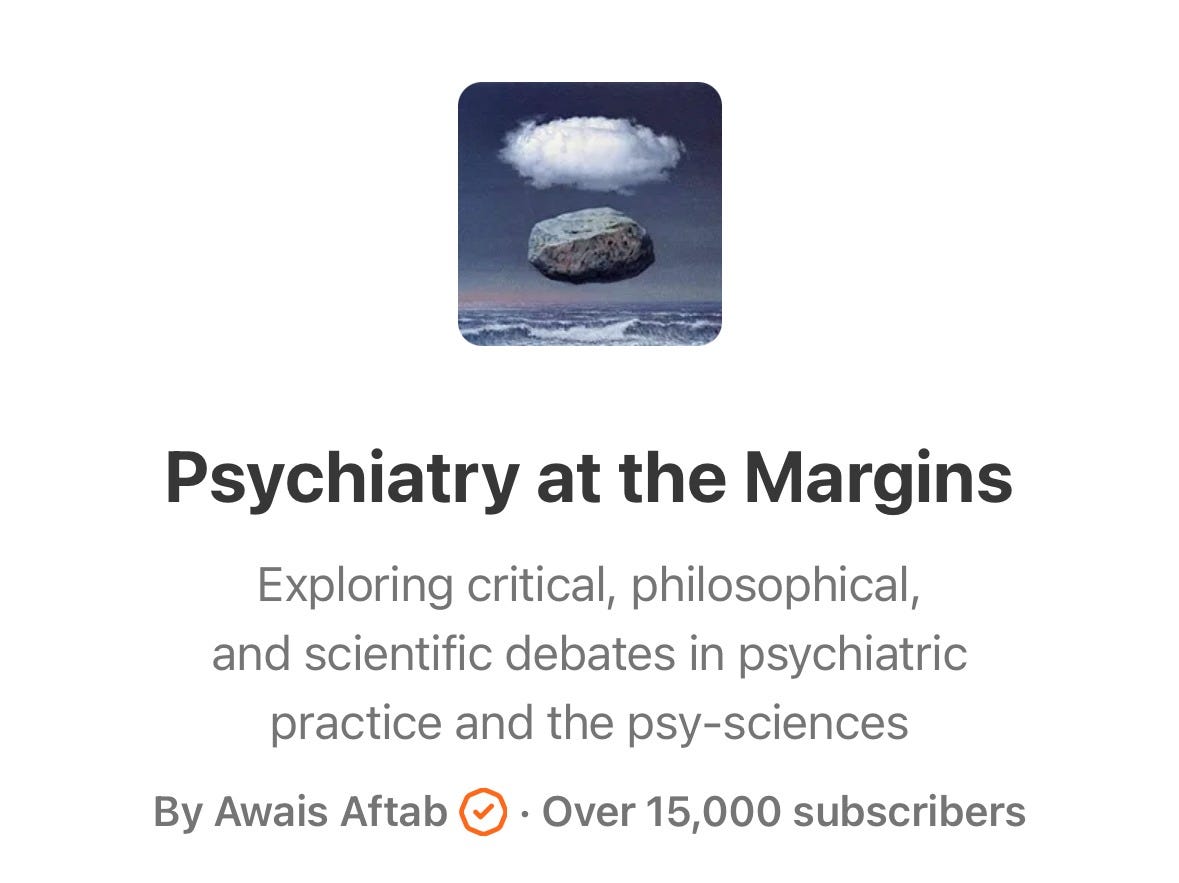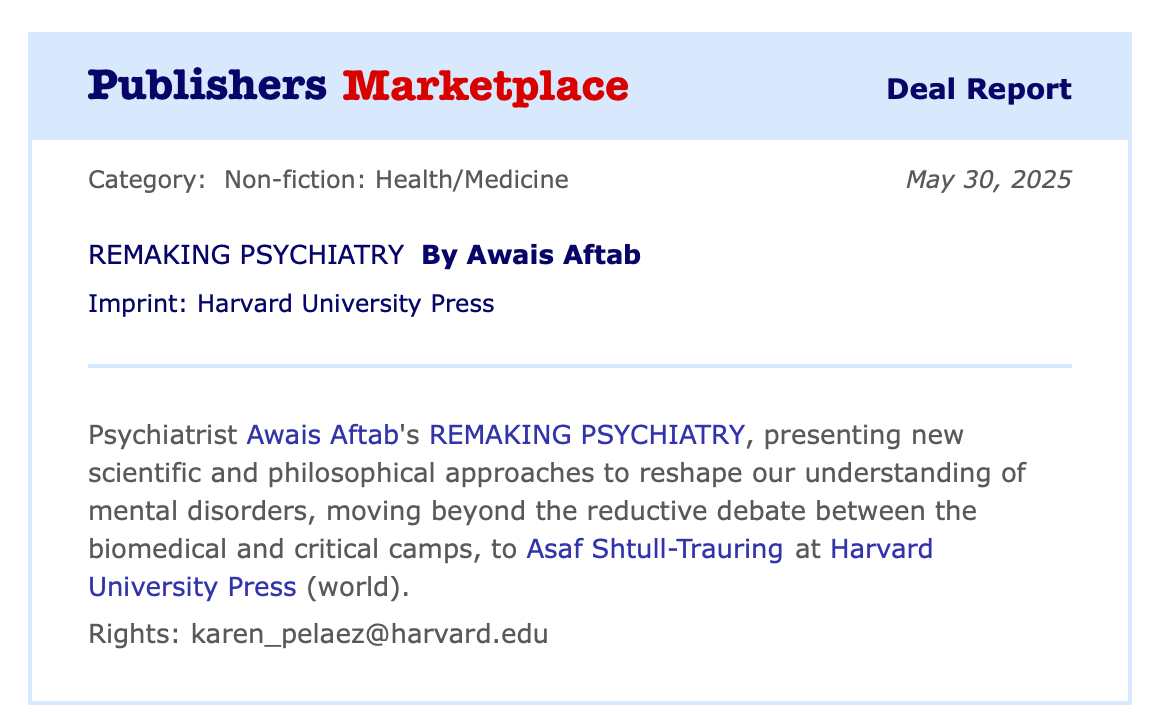Milestone/Open Thread/Updates
Ask Me Anything
Earlier this week, Psychiatry at the Margins crossed 15K total subscribers! This publication has been one of the most meaningful projects I’ve ever taken on, and seeing how it’s been received has been a gift.
As I’ve said before, Psychiatry at the Margins is a labor of love and a one-person-plus-friends operation; I’m lucky to have the friends that I have. My gratitude to all the readers across the world who subscribe to this substack, to all the guest contributors and interviewees, and an extra thanks to those who support this newsletter with a paid subscription. If this newsletter enriches your intellectual life, please do consider a paid subscription.
Paid subscriptions not only facilitate the time and effort required to produce this newsletter and help keep most posts accessible without paywalls, they also enhance the visibility and reach of the newsletter because Substack rankings depend on the number of paid subscriptions.
It is intriguing that my partial agonist stance towards the profession, to borrow a metaphor from pharmacology, at times generates a bemusing range of responses, with some calling me an apologist for the psychiatric mainstream and some calling me an antipsychiatrist! For my part, I’m committed to exploring and advancing a scientifically grounded, philosophically informed psychiatry that takes seriously the depth and complexity of human experience while situating it within a broader, pluralistic mental health landscape. And for the foreseeable future, you can expect more of the same.
This post is an open thread with an invitation to ask me anything. All readers are welcome to comment: share feedback, introduce yourselves, point out theoretical or scientific developments that I should be paying attention to, suggest topics for future posts, etc.
#1. I posted this on social media some time ago but didn’t get around to including it in the newsletter, so I’m doing that now. I’m writing a book for general readers, under contract with Harvard University Press, presenting new scientific and philosophical approaches that reshape our understanding of mental disorders.
#2. If you missed it, check out my interview with Daniel Oppenheimer on Eminent Americans, among my favorite conversations I’ve had for a podcast.
#3. The British Journal of Psychiatry is the latest in the list of journals that have published a glowing review of Conversations in Critical Psychiatry, my book of interviews published by Oxford University Press. I’m grateful to Tom Harrison for his favorable assessment: Aftab “condenses an understanding of psychiatry that everyone working in the field would benefit from”.
#4. I was part of a survey study assessing self-reported conceptual competences among French psychiatry students and practitioners, underlining the pedagogical necessity of integrating philosophy into psychiatry education, led by Christophe Gauld and Jean-Arthur Micoulaud-Franchi. The results were published in L'Encéphale in May 2025.
#5. An article in the New Yorker by Rachel Aviv describes the case of a patient who was treated for cancer with immunosuppressant medication, and the treatment also relieved her psychosis of twenty years, suggesting that she may have had some form of undiagnosed autoimmune psychosis. This naturally brings up the question... how many more patients like her are out there, and what can be done? This is a question I've myself struggled with as a clinician. In 2023 when Washington Post published the story about April Burrell, I wrote a post on the clinical complexities around medical work-up of psychosis and how current practice relying on clinical suspicion rather than routine testing leaves many patients without correct or timely diagnosis. The post is worth revisiting.
#6. Erik Hoel is among my favorite writers on Substack and he has published a delightful short story on The Intrinsic Perspective, “They Die Every Day”, that you should all read.
See also:







Congratulations on the book deal! It sounds like an important book for our times.
What's the most important (realistic) change you're hoping to see in psychiatry over the next 20 years?
What makes you optimistic that that change is likely to happen, and conversely what do you think are the biggest barriers or risks that make it less likely to happen?